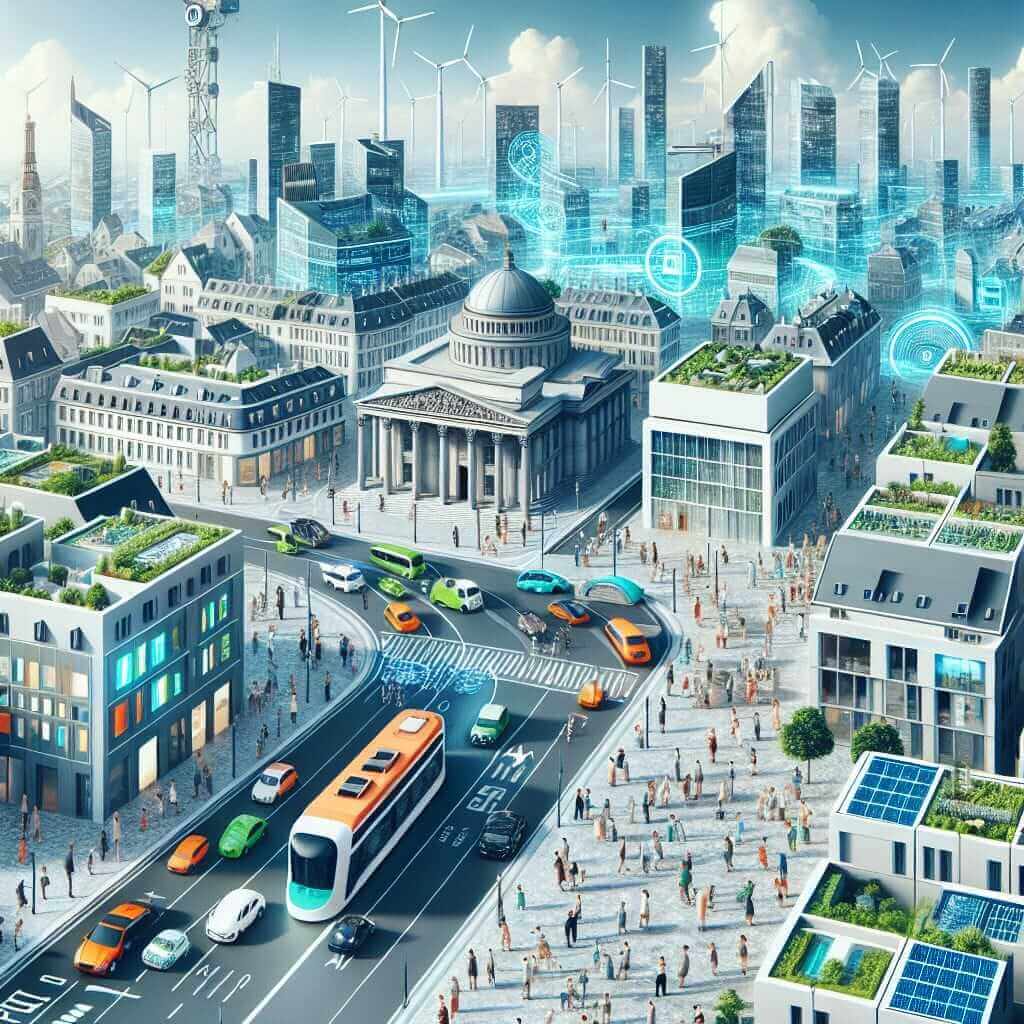The IELTS Reading section can be challenging, especially with its diverse range of topics. In recent years, there has been increasing interest in urban development subjects, such as solutions to urban housing crises and the implementation of smart city technologies in European cities. These topics are not only significant but also reflect current societal trends, making them highly relevant and likely to appear in IELTS Reading passages.
In this article, we will explore an IELTS Reading passage designed to help you practice your comprehension skills, focusing on the themes mentioned above. We will also provide questions, answers, common pitfalls, useful vocabulary, and grammatical structures to watch out for.
Reading Passage
The Housing Crisis and Smart City Solutions
Urban housing crises have become prevalent in many parts of the world, especially in European cities. As populations in urban areas continue to grow, the demand for affordable housing rises, often outstripping supply.
To address this issue, several European cities have implemented innovative solutions. One such solution is the development of smart city technologies. Smart cities utilize advanced technologies to manage resources efficiently, improve residents’ quality of life, and reduce the environmental impact.
For instance, smart sensors can monitor and control energy usage in buildings, optimizing heating, cooling, and lighting systems to reduce costs and emissions. Additionally, smart transportation systems can alleviate traffic congestion, making it easier to move around the city and reducing pollution levels.
In cities like Barcelona and Amsterdam, these technologies have been successfully integrated into urban planning. Barcelona has implemented a smart grid, which enables real-time energy management, and Amsterdam has introduced smart parking systems to reduce time spent searching for parking spots.
However, there are challenges associated with these implementations. The initial cost of integrating smart technologies can be high, and the displacement of low-income residents from newly developed areas remains a concern.
Despite these challenges, the potential benefits of smart city technologies in addressing urban housing crises are significant. By enhancing resource efficiency and urban livability, these technologies can play a crucial role in creating sustainable and habitable cities for the future.

Questions
Multiple Choice Questions
-
According to the passage, which of the following is a solution implemented in smart cities to manage energy usage?
a) Installing solar panels on all buildings
b) Implementing smart sensors
c) Reducing the number of buildings
d) Increasing energy tariffs -
Which cities are mentioned as examples of successful smart city implementations?
a) Berlin and Paris
b) Oslo and Stockholm
c) Rome and Madrid
d) Barcelona and Amsterdam
True/False/Not Given
- Smart city technologies have been implemented in all European cities.
- Smart transportation systems help reduce traffic congestion.
Sentence Completion
- The rising urban population has led to an increased demand for ____.
Matching Information
Match the following features with the cities mentioned in the passage:
- Smart grid implementation
- Smart parking systems
Answers
-
b) Implementing smart sensors
- Explanation: The passage mentions that smart sensors can monitor and control energy usage in buildings, optimizing heating, cooling, and lighting systems.
-
d) Barcelona and Amsterdam
- Explanation: The passage highlights Barcelona and Amsterdam as examples of cities where smart city technologies have been successfully integrated.
-
False
- Explanation: The passage does not state that smart city technologies have been implemented in all European cities.
-
True
- Explanation: The passage mentions that smart transportation systems can alleviate traffic congestion.
-
affordable housing
- Explanation: The passage identifies that the rising urban population has led to an increased demand for affordable housing.
Matching Information
- Barcelona: Smart grid implementation
- Amsterdam: Smart parking systems
Common Pitfalls
- Misinterpreting the information: Ensure you grasp the main idea of each paragraph to avoid confusion.
- Overlooking keywords: Pay attention to specific words that indicate the scope and context, such as “affordable housing,” “smart sensors,” and specific cities mentioned.
- Time management: Practice skimming and scanning techniques to find information quickly.
Vocabulary
- Smart city (noun): /smɑːrt ˈsɪti/ – A city that uses digital technology to enhance performance and well-being.
- Congestion (noun): /kənˈdʒes.tʃən/ – Overcrowding; the state of being congested.
- Grid (noun): /ɡrɪd/ – A network of lines used to supply electricity to a large area.
- Displacement (noun): /dɪsˈpleɪs.mənt/ – The process of being moved from one’s usual place or position.
Grammar
- Relative clauses: Often used to add more information about a noun. Example: “Cities like Barcelona and Amsterdam, which have integrated smart technologies, serve as models.”
- Comparative structures: Used to show contrasts or comparisons. Example: “Smart sensors are more effective than traditional systems.”
Tips for High Reading Scores in IELTS
- Practice regularly: Regular reading practice can improve speed and comprehension.
- Skim first, then scan: Quickly skim the passage to get the gist, then scan for specific details.
- Expand your vocabulary: A broader vocabulary will help you understand and answer questions more effectively.
- Understand the question types: Familiarize yourself with the different types of questions in the IELTS Reading section.
- Stay calm and focused: Manage your time wisely and stay calm to maximize your performance.
By mastering these tips and regularly practicing with passages like the one above, you can enhance your reading skills and improve your IELTS scores.